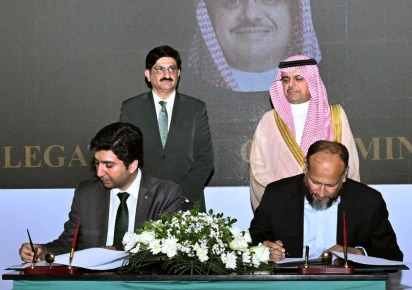
In an impressive display of diplomatic finesse, the government has skillfully resolved a complex dispute involving Pakistani entrepreneur Sheharyar Chishti and the Saudi stakeholders of K-Electric (KE). Chishti has graciously agreed to step down, transferring the majority of his stakes to a Saudi investor, thereby paving the way for an era of enhanced bilateral investment.
In a major stride towards fortifying Saudi-Pakistan economic relations, Prince Mansour Bin Mohammed Al Saud has ceremoniously inked a Memorandum of Understanding (MoU) with Chishti, cementing the acquisition of a commanding shareholding in KES Power Ltd, the principal entity holding 66.4% ownership of K-Electric.
According to insiders briefing The Express Tribune, Chishti had previously acquired shares in K-Electric with aspirations to take control of the company, subsequently igniting a legal conflict at the Sindh High Court with the Saudi partners.
Informants have disclosed that the Saudi shareholders persistently broached the issue with the Pakistani authorities, notably during Prime Minister Shehbaz Sharif’s recent diplomatic visit to the Kingdom. They insisted on full transparency regarding Chishti’s financial sources for purchasing KE shares, perceiving his moves as a ‘coup’ and calling for his dismissal from the company.
“The recent deal between the Saudi investor and Chishti is part of a settlement to remove Chishti from KE,” said a source, adding that Chishti would transfer all his shares to the Saudi investor.
A high-level Saudi delegation is currently in Pakistan, and sources said that the Special Investment Facilitation Council (SIFC) played a key role in brokering the agreement between Chishti and the Saudi investor.
KE, incorporated in 1913 as Karachi Electric Supply Company (KESC), is Pakistan’s only vertically integrated power utility, supplying electricity to Karachi and its adjoining areas.
The majority of its shares, 66.4%, are owned by KES Power, a consortium including Al-Jomaih Power Limited of Saudi Arabia, National Industries Group (Holding) of Kuwait, and KE Holdings (formerly Infrastructure and Growth Capital Fund). The Government of Pakistan holds 24.36%, while the rest are free-float shares.
